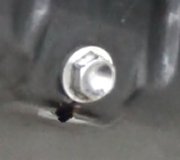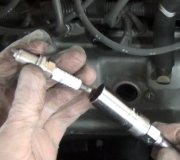The electrical connector could have been degraded from sitting so close to a heat source, then problems can arise when handling it. There is always a way to fix intermittent contact between terminals, either with new ones or by just squeezing them a little tighter. Corroded terminals will often work until they are disturbed. Your mechanic may have had to disconnect the plug, and while it's true that brought on the problem, it's not exactly his fault. The problem would have shown up anyway, just not for many weeks or months.
There's two problems with ignoring the Check Engine light. The obvious one, since we are pretty sure it's on due to a problem with the oxygen sensor, is the Engine Computer uses that to fine tune the amount of fuel going into the engine. You may not notice a running problem as long as there's too much fuel, but if it were to go too lean you'd experience hesitations and stumbling on acceleration. Fuel consumption will increase.
The less obvious problem is the computer constantly runs self-tests on many systems, and it needs to see how things it does affect the readings from the oxygen sensors. When it knows it can't rely on those readings, it won't run some self-tests and it will not set related diagnostic fault codes to tell you which circuits or systems have a problem. Some minor problems can turn expensive real quickly if you don't know about them and ignore them.
Thursday, March 7th, 2013 AT 10:41 PM


